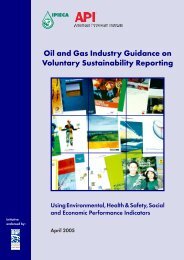Why human rights matter - Rio Tinto
Why human rights matter - Rio Tinto
Why human rights matter - Rio Tinto
You also want an ePaper? Increase the reach of your titles
YUMPU automatically turns print PDFs into web optimized ePapers that Google loves.
<strong>Why</strong> <strong>human</strong><br />
<strong>rights</strong> <strong>matter</strong><br />
Case study 4<br />
January 2013<br />
Case study 4: <strong>Rio</strong> <strong>Tinto</strong> at Simandou in Guinea<br />
Focus on health in baseline and<br />
impact assessments<br />
Simandou<br />
Guinea<br />
The context<br />
Simandou Iron Ore project is located in the Republic<br />
of Guinea, some 700km to the east of the capital<br />
Conakry. The project is in pre-feasibility phase<br />
and when developed will have a mine life that may<br />
extend beyond 50 years.<br />
<strong>Why</strong> a focus on health<br />
At Simandou Iron Ore, community and employee<br />
health was identified as a key issue through a<br />
screening study undertaken at the exploration<br />
phase, through some early baseline and impact<br />
assessment work, and a more recent social<br />
baseline study. These studies did not include<br />
explicit <strong>human</strong> <strong>rights</strong> indicators but did consider<br />
several topics relevant to <strong>human</strong> <strong>rights</strong>, such as<br />
education, nutrition and vulnerable groups. From<br />
these topics, the studies identified several factors<br />
that may contribute to health related impacts<br />
such as in-migration, which can adversely affect<br />
nutrition, sanitation and the spread of disease. The<br />
studies also noted that access to quality, affordable<br />
and acceptable health care facilities was a major<br />
challenge in the Simandou Iron Ore project area.<br />
Challenges to the right to health impinge upon the<br />
enjoyment of other <strong>human</strong> <strong>rights</strong>, such as the right<br />
to an adequate standard of living and the right to<br />
potable water and sanitation.<br />
As a result, <strong>Rio</strong> <strong>Tinto</strong> commissioned a dedicated<br />
impact assessment focusing on health. This<br />
enabled Simandou Iron Ore to identify and mitigate<br />
potential adverse health impacts as well as identify<br />
opportunities for the company to enhance the local<br />
enjoyment of the right to health and other related<br />
<strong>human</strong> <strong>rights</strong>.<br />
Health baseline and impact assessments<br />
The International Finance Corporation (IFC) holds<br />
a five per cent stake in the Simandou Iron Ore<br />
operation, requiring the operation to have in place<br />
measures for minimising adverse health impacts.<br />
To comply with the IFC’s Performance Standard 4<br />
and to respond to early study findings, Simandou<br />
Iron Ore established a steering group comprising<br />
<strong>Rio</strong> <strong>Tinto</strong> personnel and external consultants to<br />
undertake four steps in developing a community<br />
health management plan (CHMP):<br />
– health scoping study;<br />
– baseline health survey;<br />
– health impact assessment; and<br />
– development of the CHMP.<br />
The scoping study identified gaps in available<br />
community health data from local and national<br />
statistics, which were needed for the baseline<br />
survey and impact assessment. The study aimed<br />
to understand health impacts that could be<br />
associated with Simandou Iron Ore as well as<br />
existing health needs of people in the area.<br />
The baseline study assessed the existing health<br />
context, as well as informed the initial Community<br />
Development Programme areas. The study<br />
methodology required the collection of both<br />
qualitative and quantitative data and inclusive<br />
consultation with stakeholders. Focus group<br />
47


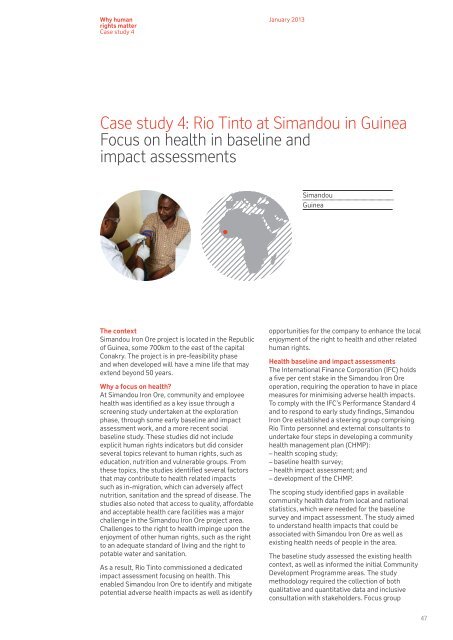
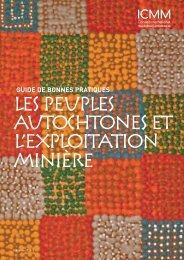
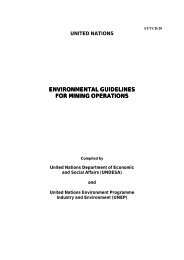
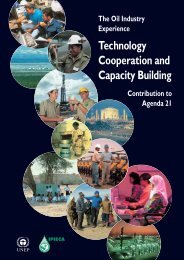
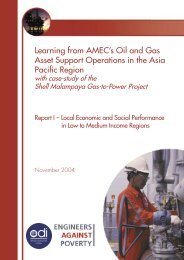
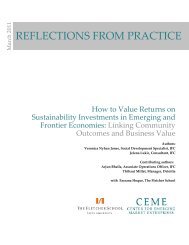
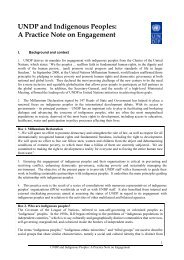
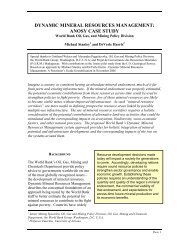
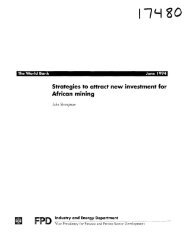
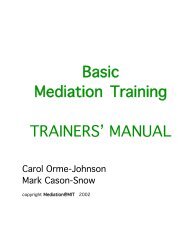
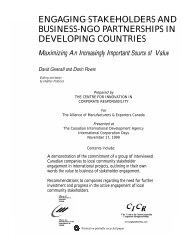
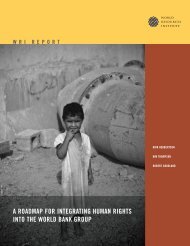
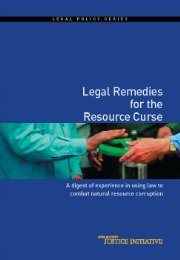
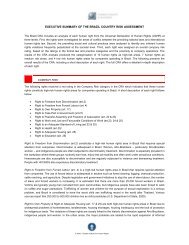
![[PDF] Community Development Toolkit - CommDev](https://img.yumpu.com/48616495/1/184x260/pdf-community-development-toolkit-commdev.jpg?quality=85)
